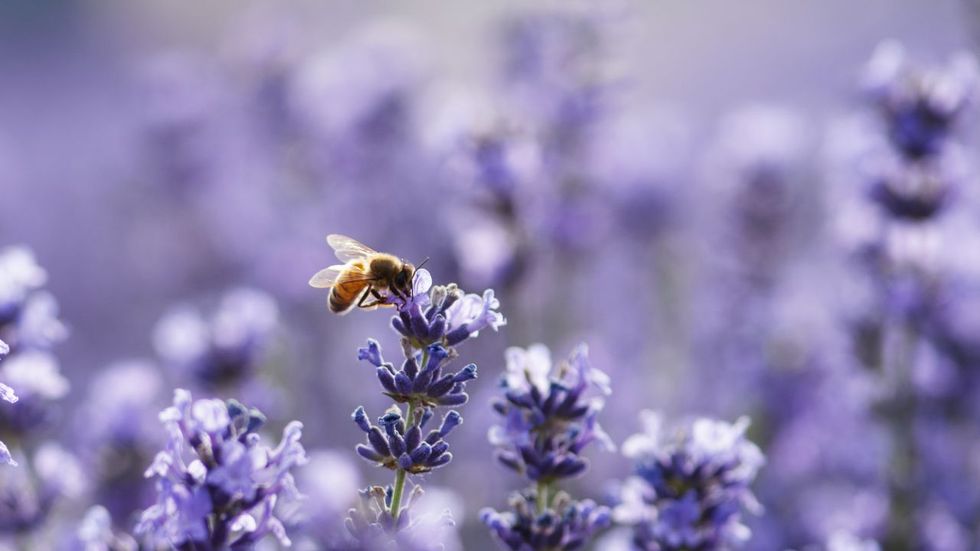Eight years ago, I watched a documentary called Vanishing of the Bees, a film that first alerted me to the issue of the disappearing honeybee population. I was struck by images of farmers transporting boxes of hives across the country to pollinate almond monocultures, photographs of completely decimated hives, and interviews with sobbing beekeepers who lost more than 30% of their bees each winter. What was the cause of this seemingly mysterious collapse? Could I (12-year-old Meredith) help?
Bees—all 20,000 species of them—have been important to the human race for more than 9000 years for their honey, beeswax, and pollinating practices. Nutrition for these insects comes from flowers; they get their protein from the pollen and carbohydrates from the nectar.
They bring the nectar and pollen back to the hive to provide food for the colony. In the process of moving from flower-to-flower to collect these nutritious substances, bees transport pollen, allowing for fertilization of the plant it visits.
Pollen is also transported by the wind and by animals such as bats, birds, beetles, and butterflies. Although important, their efficiency and frequency hardly compare to that of honeybees, bumblebees, and solitary bees. An estimated 1/3 of the U.S. diet is derived from insect-pollinated plants. We can thank bees for 80% of that.
Since 1945, we’ve lost more than 50% of the 4.5 million bee hives that once existed. Marla Spivak, in her 2013 TedTalk “Why bees are disappearing,” cites four causes of these precious insects’ decline. These phenomena are interconnected in a positive feedback loop, causing the problem to worsen more rapidly. Flowerless landscapes, changes in agricultural practices, use of pesticides, and increasingly virulent parasites and disease are all systematically wiping out our bee population—worldwide.
As we plant more monocultures, we clear land that was once a diverse community of wildflowers. As we apply synthetic fertilizers, instead of planting natural ones such as clover and alfalfa, and develop pesticides that infect nectar-seeking insects with neurotoxins, we only endanger these populations further.
I have had the privilege of being a bee-lover and activist on two continents—in London, England and on campus at the University of Minnesota – Twin Cities. Marla Spivak’s office is right down the hall from that of the graduate student with whom I volunteer.
I’ve worked on field research projects, helped put on events to raise citizen awareness, and learned how to identify a dozen species of U.K. bees to verify data records as part of the Great British Bee Count.
My contribution has been small, but meaningful and I am hopeful for the future of our remaining bees. But we can’t keep feeding the loop of monoculture, pesticides, and synthetic fertilizers. The extinction of bees is no light matter and would, in the end, result in costly hand-pollination practices and a lack of richness and diversity in our own diets. The rapidity of the bees’ decline can feel daunting, especially in the face of established institutions such as government, business, and agriculture.
So, what can we as individual bee-conscious citizens do? We can restore flower-rich meadows, urge politicians and businesses to limit the type and amount of pesticides used on crops, plant our own bee-friendly flowers in our backyards, and purchase and build bee hotels to provide habitats for solitary bees.
The loop that Dr. Spivak described will not come to an end without interruption. Interruption will not occur without action. We can take care of our bees, but we’ve got to help them now.





















